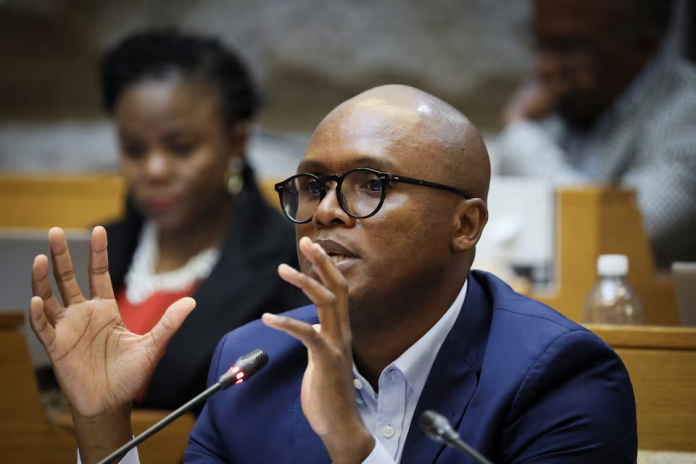South Africa’s Communications Minister Solly Malatsi rejected claims that proposed changes to Black economic empowerment (BEE) requirements for tech firms were designed to favour Elon Musk’s Starlink satellite internet service, according to AP News.
The draft policy, published on 23 May 2025, would allow foreign companies to meet transformation obligations through investments in skills development and local suppliers, rather than selling 30% equity to historically disadvantaged groups, a rule currently mandated under the Electronic Communications Act.
Malatsi faced sharp criticism in parliament this week, particularly from ANC and EFF lawmakers, who accused the government of undermining its own empowerment agenda.
The timing of the proposal—days after President Cyril Ramaphosa’s meeting with his US counterpart Donald Trump—raised suspicions of external pressure, though Malatsi insisted the policy had been in development since September 2024.
The draft directive, which does not explicitly name Starlink, has been labelled a “spectacular mess-up” by African National Congress MP Khusela Diko, who warned it risked legal challenges and accused the government of “rewriting laws in Washington.”
Malatsi, however, maintained that “transformation is sacrosanct” and denied any special treatment for Musk’s company.
We are not attempting to open a special dispensation for Starlink or any other company or an individual.
Starlink’s entry into South Africa has been stalled by Musk’s refusal to comply with BEE laws, which he has called “openly racist.” The service is already operational in neighbouring countries like Mozambique and Botswana, where US diplomatic pressure under Trump reportedly accelerated approvals.
The proposed “equity equivalent” model mirrors policies in sectors like mining, allowing companies to meet transformation goals through alternative investments.
The Association of Communications and Technology (ACT) cautiously welcomed the move, calling for “smarter, scalable approaches” to balance investor confidence with empowerment objectives.
Stakeholders now have 30 days to submit feedback before the policy is finalised. Meanwhile, Ramaphosa’s office has denied discussing Starlink during his US visit, though critics remain sceptical.
